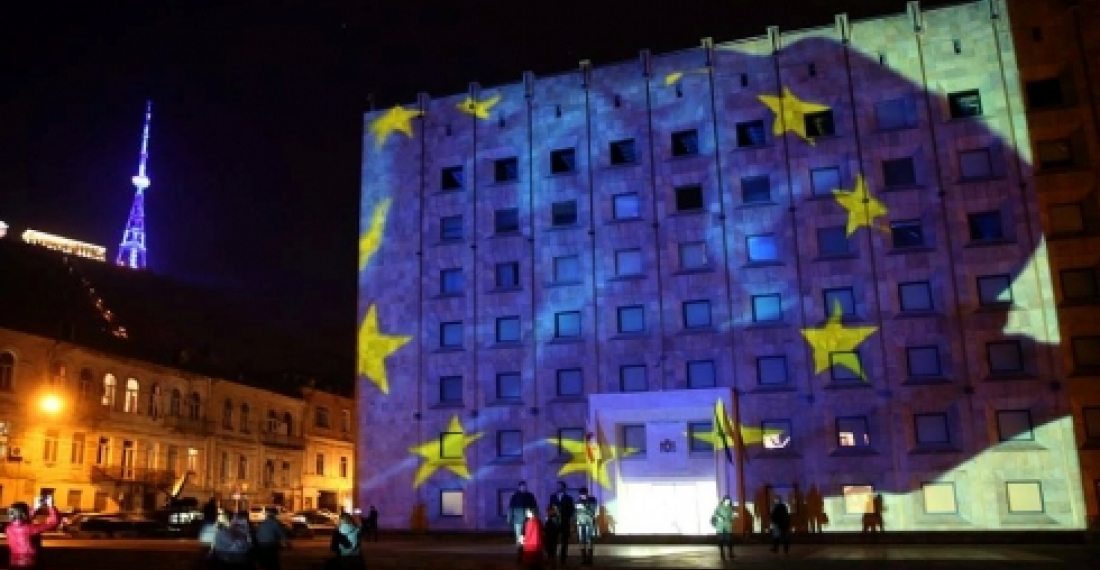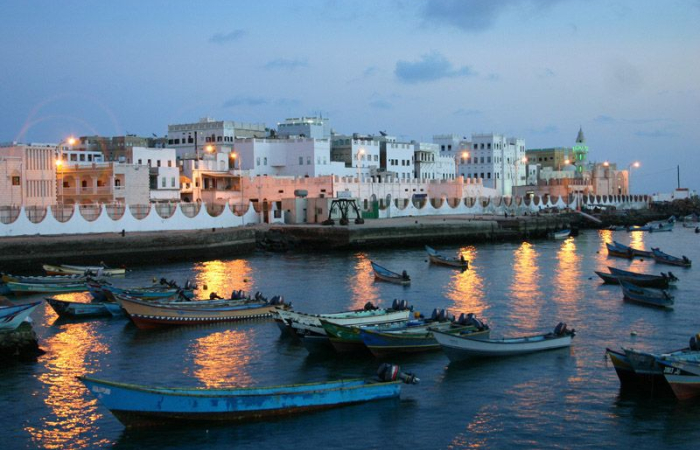A review of the year 2015 in the South Caucasus prepared by the editorial team of commonspace.eu.
For the nations of the South Caucasus 2015 has been a year of sharp contrasts. It is difficult to say that the year has been an entirely good one for any of the countries in the region Internal processes were also overshadowed by turmoil in the wider European, Eurasian and Middle East regions.
Armenia started the year by joining the Eurasian Economic Union, but throughout the rest of the year tried to develop a new relationship with the European Union. This latter process started slowly by the end of 2015. However for Armenia, and Armenians world-wide 2015 will always be remembered as the centenary anniversary year of the Armenian genocide. The events of one century ago were marked with dignified ceremonies in Armenia attended by thousands of visitors from the diaspora. Some saw this as the moment to close a tragic chapter in Armenian history and focus on the future, whilst others persisted in demanding for genocide recognition. Internally Armenia remains weak economically, with a political system that looks increasingly stagnant. A referendum on constitutional changes failed to trigger the interest of most people, and the level of turnout and overall result was questioned by some local and foreign observers.
Azerbaijan has also had a year of contrasting moments. The 1st European Games held in Baku in the summer were a well organised affair that showed the extent that the country had progressed over the years from a backwater of empires to the centre of international activity. The success of the games were somewhat overshadowed by the slump in oil prices that saw Azerbaijan take a sharp hit to its revenues resulting in a serious depreciation of its currency. The economic turbulence took a heavy toll on many sections of the population, many of which had only just emerged out of poverty, but the government used some of its external reserves to protect the more vulnerable sections of society. 2015 also brought to the fore serious fault-lines in the Azerbaijani political system as political and civil society activists were put on trial for administrative shortcomings and misdemeanours. In the latter part of the year however it was the dismissal of the Minister of Security and various other high officials, and the uncovering of a systematic system of extortion and corruption at the heart of government that caused the biggest outcry.
For Georgia 2015 has been a year of modest achievements. The process of Georgia's association with the European Union continued at a steady pace, and the year ended with the news that Georgians will soon not require a visa to visit EU Schengen countries. The Georgian economy has yet to start benefitting fully from the new relationship with the EU, but it has remained largely stable and the EU relationship has given the country a sense of security and well-being. Georgia continues to be an opaque democracy. Processes within the Georgian Dream coalition which has governed the country since 2012 continued to be fuelled by speculations around the role of Bidhzina Ivanishvili in Georgian politics. Although Ivanishvili has no official position in the government many Georgians believe that he is the ultimate decision maker. The surprise resignation of Prime Minister Irakli Garibashvili added fuel to this speculation. However overall the country remains more stable than it has ever been, and this is considered to be very much to the Coalition's credit. For Georgia problems in the legal system provided the most serious challenge for 2015, and the year ended as it started with accusations and counter accusations between government and opposition, and with the Georgian people increasingly distrustful of the legal process.
In the unrecognised entities of Abkhazia, South Ossetia and Nagorno-Karabakh politics remained largely parochial. In Abkhazia society remains split between different political forces based on clan loyalties, triggering concerns in Moscow, whilst in South Ossetia the situation continues to be kept under control with generous handouts from Russia. The political situation in Nagorno-Karabakh remains largely stagnant, as the population feels increasingly besieged.
The conflict between Armenian and Azerbaijan over Nagorno-Karabakh took a turn for the worse in 2015, with serious breaches of the cease fire and considerable casualties on both sides. The efforts to bring the sides to serious negotiations largely failed, although there was a silver lining at the end of the year when the Presidents of the two countries finally met in Switzerland in December. Russia remained the most active member of the Minsk Group co-Chair troika trying to mediate between the sides, but Russia's complicated relationship with the two countries makes its mediation role fraught with suspicion.
The South Caucasus however does not exist in isolation. The internal processes within the countries of the region and between them remain very much influenced by the processes in the wider European, Eurasian, and Middle East regions. Russia's continued stand-off with the west on Ukraine and other issues casts a shadow over the region, even if by and large no side has tried to embroil the region in this wider dispute. Even closer to home are the new problems between Turkey and Russia - two countries who have their own Caucasian dimension, and who started the year the best of friends and ended it as bitter rivals, even if not yet enemies. None of the three South Caucasus states has any reason to be happy with this emerging Russian-Turkish crisis which can still escalate. The only positive regional development has been the deal between Iran and the international community on the nuclear issue. Iran's return as a player in the region can be a positive factor economically, even if Iran continues to carry heavy political baggage.
At the end of 2015 the people of the South Caucasus have no reason to feel overly optimistic. There is in the region a sombre mood - a sense of relief that the year has passed without much worse consequences, and hope that this may constitute the basis for a better year to come.
source: A review of the year 2015 in the South Caucasus prepared by the editorial team of commonspace.eu.
photo: A moment of optimism in the South Caucasus in 2015: The Georgian Government State Chancellory building in Tbilisi lit up in EU flag to mark the decision allowing visa free travel for Georgians to the EU Schengen country member states. (Picture courtesy of the Government of Georgia).






